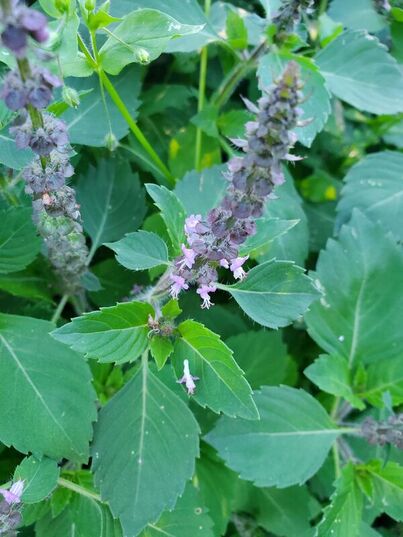or Holy Basil (Ocimum sanctum)
Growing Tulsi
There are several different varieties of holy basil – some perennial and others annual. The holy basil variety that we grow is commonly known as Rama, and is an annual that we plant from seed. Like the common culinary basil, Ocimum basilicum, tulsi is native to India and western Asia. So it prefers hot weather and lots of sunshine. Here in the Northwest, we find that it is best to wait until sometime in early June to plant the tiny black seeds. The seeds will germinate in as little as 1 week or 2, and leaves should be ready for harvest in 3-4 weeks. We grow it in our veggie garden where it gets watered regularly, which helps it grow vigorously. Basils, including holy basil, can grow well in containers, just be sure to water it regularly to keep it from drying out.

